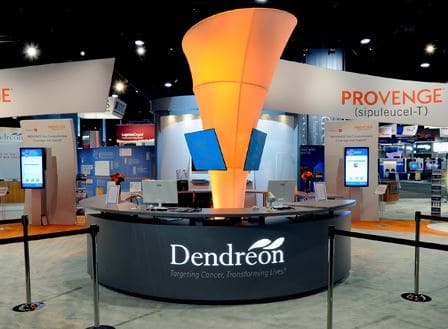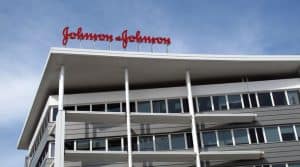
Dendreon files for bankruptcy
pharmafile | November 12, 2014 | News story | Research and Development, Sales and Marketing | Dendreon, Provenge, awick, delaware, johnson, nj
Dendreon Corporation, the troubled manufacturer of high-cost cancer vaccine Provenge, has filed for bankruptcy as a prelude to restructuring its finances.
The Seattle-based biotech has been struggling ever since the sales performance of Provenge (sipuleucel-T) fell short of expectations, and has this week filed voluntary petitions under Chapter 11 of the Bankruptcy Code in the US Bankruptcy Court for the District of Delaware.
Looming over the firm is a $620 million debt bill which is due to be repaid in early 2016. Concerns over its ability to pay this off has led to the bankruptcy move, which offers the firm some protection.
The restructuring could take the form of a standalone recapitalisation or a sale of the company or its assets – but Dendreon insists that it has the backing of people holding about 84% of the debt to follow this course, which would see the debt converted into equity in the reorganised firm.
“We are confident that this process will allow Provenge to remain commercially available to the patients and providers who have come to rely on this revolutionary personalised cancer immunotherapy,” says W. Thomas Amick, president and chief executive officer of Dendreon.
“We are pleased to have the support of a substantial majority of our senior noteholders through this restructuring and sale process,” he adds. Former chief executive John Johnson resigned in the summer.
Quite apart from the fact that Provenge has not made as much money as expected – around $300 million this year, compared with predictions of $4 billion per year – competition in immuno-oncology is intense.
Provenge was approved by the FDA in April 2010 but slow uptake led to Dendreon slashing 600 jobs and closing its manufacturing facility in New Jersey last year as part of restructuring plans.
Its high cost, an unusual mechanism of action and rivals such as Johnson & Johnson’s Zytiga and Astellas and Medivation’s Xtandi – have been key reasons for Provenge’s failure to gain the market foothold its manufacturer expected.
While it was the first immuno-oncology treatment of its type to be approved anywhere in the world, it was closely followed by Bristol-Myers Squibb’s blockbuster melanoma treatment Yervoy (ipilimumab).
In September Merck also became the first pharma firm to gain approval for the next generation of immuno-oncology treatments known as PD-1 inhibitors, after its melanoma treatment Keytruda (pembrolizumab) gained the FDA’s backing.
Bristol-Myers Squibb has also just been granted a speedy review for its new cancer immunotherapy drug Opdivo by the FDA, for patients with the deadliest form of skin cancer.
Adam Hill
Related Content

Few in NHS trust tech firms handling patient data
Few in the NHS trust ‘big tech’ companies to handle patient data in a confidential …

Valeant to sell cancer business to Sanpower for $820m
Valeant Pharmaceuticals has announced it is to sell its cancer business Dendreon to Chinese firm …

J&J hands over compassionate use reviews to academics
Johnson & Johnson has struck a ‘first-of-its-kind partnership’ with academic researchers to review requests for …








